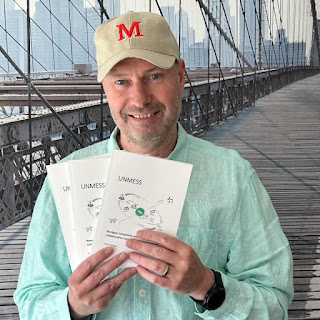When I (re)started my consulting career at the beginning of 2020 I was so pleased to be on my own again! The feeling of the wind in my hair, endless opportunities, and being a skipper of my own fate. After 4 years it still feels natural for me, it reflects who I am. However, these 4 years turned to be the most challenging period in my career. First due to COVID-19, and this year, 2023, due to the effect of "the most expected recession ever" when companies literally cut all budgets to their roots.
I have been working in IT industry for 20+ years: I followed a technological career path for circa 12+ years, then got involved in running teams and projects, then I evangelised all the best practices of IT, software engineering practices, starting from XP, ending at Enterprise Agility, to massive companies that were lagging behind the innovation levels of their competition. In a way similar to many IT people, I was pulled out from IT work to play a bigger, "societal" mission to help those companies catch up. And then the mission was exposed to the market conditions of 2023.

Instead of doing purely the domain work I spent a significant portion of my time on pre-sales and marketing activities. (By the way, allow an off-topic here: this is why I claim that companies should replace hiring for positions with hiring to a distribution of roles, where, as in our personal lives, we play multiplicity of roles. Positions are oftentimes to rigid structuring limiting value generation and contributions).
Here are the lessons learnt that I feel I should share with my peers: advisors, contractors, small boutiques, expert think-tanks, etc.
1. You are still the same valuable (wo)man! Your knowledge and expertise are needed. It's not the right time of the cycle though.
2. Don't panic. Understand and respect the market cycle. There are things you can control, things you can influence, and things that concern you (which you cannot change).
3. Invest in yourself - as countries extend their engagement in public service work during crises, you should also invest in yourself. Get ready for the new cycle! Refresh your value proposition - the market will require more in the new cycle as the overall body of knowledge grows and experiences from the past are processed and transformed into new ideas and needs.
In my case, for example: I passed SAFe SPC certifications (never needed it - my experience was self-explanatory). I have caught up on th AI / ML trends and progressed on the Google Cloud Machine Learning Engineer Path towards Google Certified Professional exam. (it's been great fun by the way to see all the concepts that were "theoretically possible" when I was a student, implemented at an enormous scale).
4. In parallel - refresh personally: first close all open loops from the past. Process experiences, accept them. Look for what new qualities have emerged through your experiences. Find your preferred channel, reading, writing, physical activities, art, and leverage it to process the cloud of thoughts into clarity.
In my case, my natural channel is writing (check out my Good Companies book, available on amazon) and (amateur level) sports.
Before jumping into new endeavors, you need to understand, refresh your understanding, who you are, who you want to be, where your skills are, where your interests are, where your values call you. As they say: start with the end in mind.
5. Take special care of and pay special attention to your relation with your life partner. They may not be fully aware of the sources of your changed behaviors. Put yourself in their shoes and see how this "infected" you infects them, their stability, their roots, so that they do not lose ground under their feet - they are used to relying on you, they have relied on you for years.
For example: I took my wife on a trip to Paris that we have been postponing for years. This was the best trip ever!
6. Network heavily - during recession there are plenty of people who lost their jobs or contracts. It's not an easy time and you may not want to go through it alone. You also may not want your peers to go through this alone. There is a certain level of pressure coming from societal norms for those labelled as "unemployed". For me, historically, the network has been the most effective source of work.
Again, what I did in this area: I promised myself to reach out to one person I used to work with in the past every weekday. It really feels great.
p.s. I am planning a separate post on what I did with the blessing of more free time that was usually the case.

























